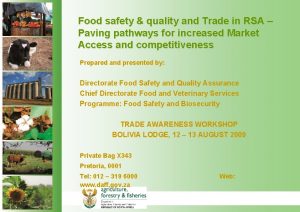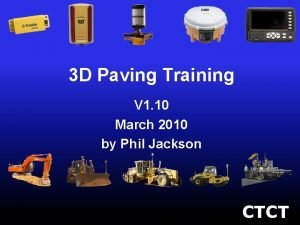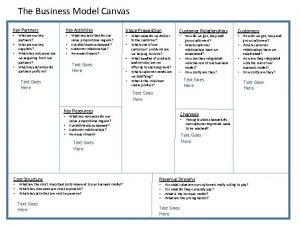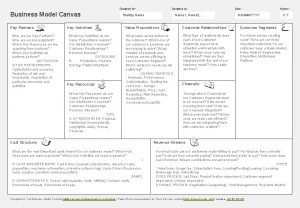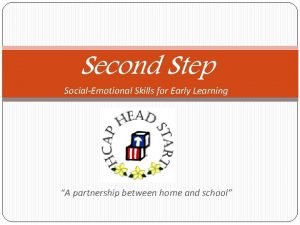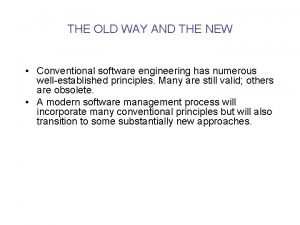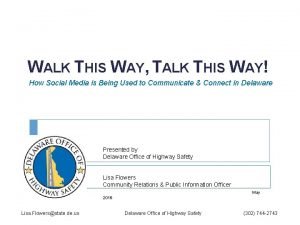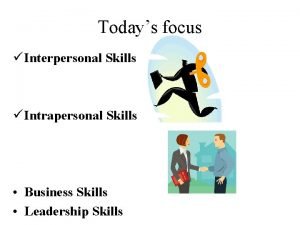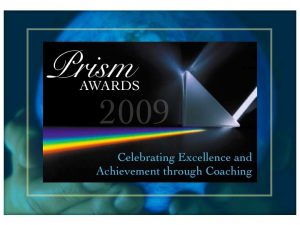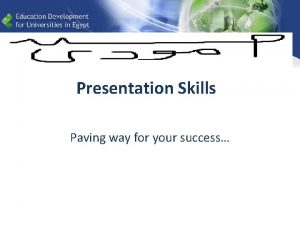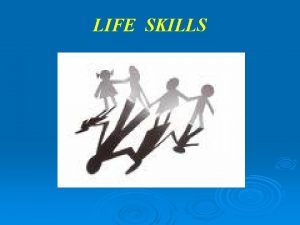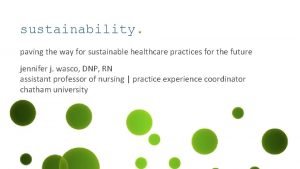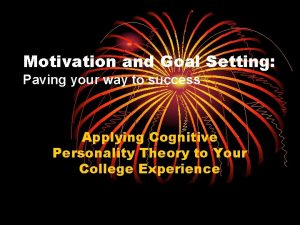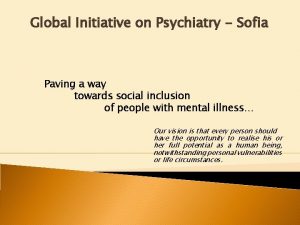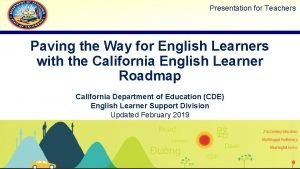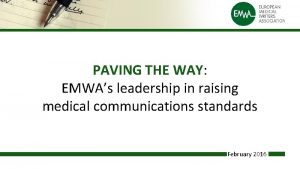PAVING THE WAY Cultivating key skills in early











































- Slides: 43

PAVING THE WAY Cultivating key skills in early childhood, better preparing Virginia graduates for the road ahead LAURA A. JANA, MD, FAAP Virginia Association of School Superintendents Hotel Roanoke & Conference Center – May 8, 2018 @drlaurajana @Dr. Laura. Jana

Upstream Innovation “When you step into an intersection of fields, disciplines, or cultures, you can combine existing concepts into a large number of extraordinary new ideas. ” - Frans Johansson, The Medici Effect

WHAT IF…? TEDx. Omaha Oct, 2014: Five Connections that Will Change Children’s Lives

The Start-Up of Your Baby “A revolutionary new guide to thriving in today’s world” offering strategies to “help your child survive and thrive and achieve your boldest parental ambitions. ” Options: students/educational employees/professional patients/health & wellbeing

From Owner’s Manual to Strategic Plan • Shared mission/vision • Actionable goals • Flexibly persistent Clarify 3 critical questions:

WHY US WHY NOW WHY EARLY

WHY US: Educators The Role of Caring Responsive Adults If your actions create a legacy that inspires others to dream more, learn more, do more and become more, you are an excellent leader - Dolly Parton Be my teacher from day one…be my sky, my moon, my sun - Rosemary Wells, Hand in Hand CEO = “Chief Engagement Officer”

WHY US: Business Early Childhood & The US Chamber of Commerce • June 2017: The US Chamber of Commerce hosts Early Childhood and the Workforce Conference • “Think of early childhood development as economic development” - Economist Art Rolnick, *

WHY US: Pediatricians AAP Policy Statement on Early Adversity & Toxic Stress January 2012 Framework for health promotion, disease prevention • • • Apply growing evidence of impact of toxic stress on the developing brain Inform deeper understanding of early life origins of educational failure and adult disease Underscore need for collaborative efforts to prevent long-term consequences of early adversity Early Childhood Adversity, Toxic Stress, and the Role of the Pediatrician Pediatrics, Vol 129, Number 1, Jan 2012

WHY US WHY NOW WHY EARLY

WHY NOW The World Our Children Will Live & Work In A billion hours ago, modern Homo sapiens emerged… A billion seconds ago, the IBM personal computer was released. A billion Google searches ago was…. this morning - Google’s Chief Economist, Sept 2018

WHY NOW The World Our Children Will Live & Work In • Industrial to Information Age • Local & linear to global & exponential • Digital Age and the “relentless march of technology” • From silos to systems • The rise of emotional intelligence • Need to plan to adapt • 10 -year plans no longer suffice

WHAT SKILLS…? TEDx. Chandigarh Jan, 2018: Skills Every Child Will Need to Succeed in the 21 st Century

Innovative Business Strategies 10 New Guiding Principles 1. People and purpose first 2. Engage don’t pamper 3. Collaboration as the new competition 4. Valuing play at work 5. Embrace non-linear thinking 6. Compasses over maps 7. Questions over answers 8. Strive for big-picture context 9. Learn to read people 10. Be willing to get it wrong

World Economic Forum: 21 st C Skills 1. 2. 3. 4. 5. 6. 7. 8. 9. 10. Critical thinking Creativity Communication Collaboration Curiosity Initiative Persistence & grit Adaptability Leadership Social & cultural awareness New Vision for Education: Fostering Social and Emotional Learning Through Technology World Economic Forum Report – March 10, 2016

THE 21 ST C TOOLKIT • “soft, ” “non-cognitive” and “other” • “Alphabet soup” of skills: • 5 C’s: critical thinking, creativity, communication, collaboration, curiosity • 4 R’s: ‘reading, ‘riting & ‘rithmetic + relationships • Social-emotional, empathy, adaptability, grit, perseverance, ability to fail

WHY EARLY The Foundational Importance of Starting Early • Starting early is intuitive • Parenting: brushing teeth, potty training, reading, feeding • Business: “Top companies engage employees from minute they show up on the job” • All I Really Needed to Know…

WHY EARLY What Happens in Early Childhood… 3 rd grade reading scores predict future life success… 18 month vocabulary predicts 3 rd grade reading scores 5 year old social skills predict future life outcomes • More likely to graduate from high school, get college degree in early adulthood, have full-time employment at age 25 The predictive power of marshmallows • Mischel’s Marshmallow Test • The Marshmallow (& Spaghetti) Challenge

WHY EARLY The Amazing Baby Brain • 85% of brain growth in first 3 years • Born with ~100 billion brain cells • Up to 1 million new neural connections/sec • Birth: Vision/hearing • By 1 year: Language • By age 5: Thinking, reasoning, communicating • Executive Function Skills – age 3 -5

WHY EARLY The Executive Function Skills 1. Inhibitory (Impulse) control • Think before acting; resist temptations, distractions and habits; prioritize actions instead of acting purely impulsively; • “Bite our tongues; ” control emotions; wait our turns; and keep from daydreaming when we need to focus 2. Cognitive Flexibility • Shift attention or “mental gears” when faced with new information, circumstances, perspectives or priorities • Out-of-the-box thinking, ability to apply different rules to different circumstances, keep from becoming too set in our ways 3. Working Memory • Ability to keep multiple pieces of information in mind accessible • “The mental surface on which important information is placed” so it’s ready to use in our daily lives

Brain Development Begins Early Strong. Nation. org/Ready. Nation

Invest Early for Larger Returns Strong. Nation. org/Ready. Nation

WHY EARLY The Power of Social Networking Strengthening connections and assembling the 21 st C toolkit involves: • Caring responsive adults • Socially-gated learning • Serve & Return


The 7 QI Skills ME WE WHY WILL WIGGLE WOBBLE WHAT IF

ME

QI Skill 1: ME Focusing Attention on Self Management • • • Self-awareness Self-regulation Self-control Attention Focus He that controls others may be powerful, but he who has mastered himself is mightier still - Lao Tsu

WE

QI Skill 2: WE Learning to Play Well With Others The people skills necessary for effective communication, collaboration, relationships and teamwork, including: • • • Emotional Intelligence Social-emotional skills Language Empathy Perspective taking Active listening

WHY

QI Skill 3: WHY Seeing the World As a Question Mark The curiosity skills necessary to strive for a better understanding of how the world works: • questioning • curiosity • inquisitiveness The important thing is not to stop questioning. Curiosity has its own reason for existing - Albert Einstein

WILL

QI Skill 4: WILL Self-Motivation: Applying the Power of Will The motivation skills that encompass: • • • Dedication & drive Commitment & conscientiousness Grit & gumption Persistence & perseverance Get-the-job-done, can-do, go-getter attitudes You can motivate by fear and you can motivate by reward, but both of these are only temporary. The only lasting thing is self-motivation. - Homer Rice

WIGGLE

QI Skill 5: WIGGLE Putting Wiggles to Work Physical and intellectual restlessness embodied by agile “movers and shakers” who take action, set stretch goals and actively reach for the stars Creative thinkers try new things and move with the changing world - Elaine Dundon, Seeds of Innovation

WOBBLE

QI Skill 6: WOBBLE Raising Children Who are Fit to Fail The adaptability skills that build and foster: • Ability to face, overcome, learn from failure • Resilience • Adaptability • Agility “Many people think you get stability by minimizing all risk. But ironically, in a changing world, that’s one of the riskiest things you can do. ” - Reid Hoffman, The Start Up Of You

WHAT IF

QI Skill 7: WHAT IF Imagining a World of Possibilities • The “possibility” skills that allow us to understand not just how the world is, but envision how it could be. They include: • Out-of-the-box, innovative thinking • Open-mindedness • Curiosity • Imagination • Creativity • Hope

QI Skill 7: WHAT IF Imagining a World of Possibilities Are we forming children only capable of learning that which is already known? Or should we try to develop creative and innovative minds, capable of discovery throughout life? - Jean Piaget The creative adult is the child that survived - Ursula K. Le Guin

QI For All Hope is QI Our children are the rock on which our future will be built…The rich potential in each child must be developed into the skills and knowledge that our society needs to enable it to prosper. - Nelson Mandela

Preparing Virginia Graduates What is Your Early Childhood Strategic Plan? 1. Where are you now? 2. Where are you going? 3. How will you get there?

drlaurajana. com drlaura@drlaurajana. com Five Connections that Will Change Children’s Lives & Skills Every Child Will Need to Succeed in the 21 st C @drlaurajana
 High desert paving
High desert paving Rsa paving
Rsa paving Bituminous paving conference
Bituminous paving conference Nchrp 23-24
Nchrp 23-24 D norman paving
D norman paving Branscome paving company
Branscome paving company Sutter paving
Sutter paving Early cpr and early defibrillation can: *
Early cpr and early defibrillation can: * Which key activities do partners perform
Which key activities do partners perform Contoh bisnis model canvas makanan pdf
Contoh bisnis model canvas makanan pdf Fine motor skills development in early childhood
Fine motor skills development in early childhood Second step social emotional skills for early learning
Second step social emotional skills for early learning Early literacy skills checklist
Early literacy skills checklist One way table and two way table
One way table and two way table Two way anova
Two way anova Explain threaded binary tree in data structure
Explain threaded binary tree in data structure Perbedaan two way anova dan one way anova
Perbedaan two way anova dan one way anova One-way anova hypothesis testing
One-way anova hypothesis testing One way anova vs two way anova
One way anova vs two way anova Analiza anova
Analiza anova Conventional software
Conventional software This way that way forwards backwards over the irish sea
This way that way forwards backwards over the irish sea Talk this way
Talk this way Soft skills intrapersonal
Soft skills intrapersonal What are skills
What are skills Ontario skills passport
Ontario skills passport Hình ảnh bộ gõ cơ thể búng tay
Hình ảnh bộ gõ cơ thể búng tay Bổ thể
Bổ thể Tỉ lệ cơ thể trẻ em
Tỉ lệ cơ thể trẻ em Gấu đi như thế nào
Gấu đi như thế nào Chụp phim tư thế worms-breton
Chụp phim tư thế worms-breton Chúa yêu trần thế
Chúa yêu trần thế Các môn thể thao bắt đầu bằng tiếng đua
Các môn thể thao bắt đầu bằng tiếng đua Thế nào là hệ số cao nhất
Thế nào là hệ số cao nhất Các châu lục và đại dương trên thế giới
Các châu lục và đại dương trên thế giới Công của trọng lực
Công của trọng lực Trời xanh đây là của chúng ta thể thơ
Trời xanh đây là của chúng ta thể thơ Mật thư tọa độ 5x5
Mật thư tọa độ 5x5 101012 bằng
101012 bằng Phản ứng thế ankan
Phản ứng thế ankan Các châu lục và đại dương trên thế giới
Các châu lục và đại dương trên thế giới Thể thơ truyền thống
Thể thơ truyền thống Quá trình desamine hóa có thể tạo ra
Quá trình desamine hóa có thể tạo ra

